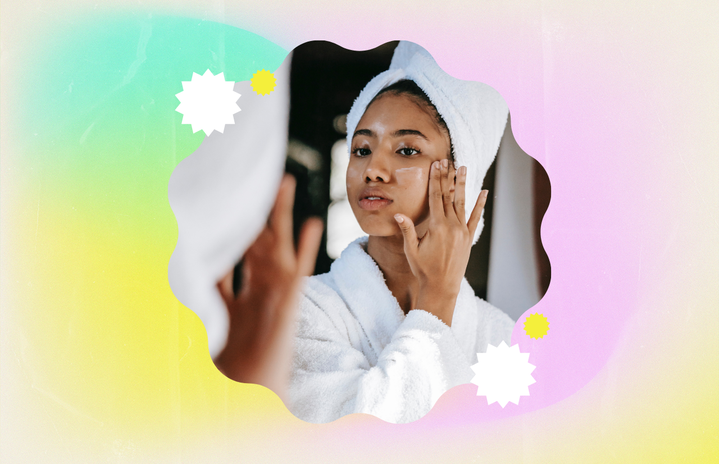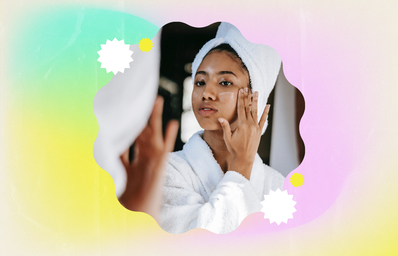It’s that time of year. Or rather, that time of life.Those breakouts you’ve been dreading have made their appearance and you’ve tried everything under the sun but still end up resorting to that suck it up, buttercup mentality. But you don’t have to give up. Before you can fight acne, you have to understand your skin. Then you can adapt a skin regimen based on this knowledge. So I’ve listed some tips that can get you started. Whether you follow them is up to you. And remember, the only person who knows your skin best is you.
one (or two) and done:
Many believe you need to wash your face at least twice a day to maintain an optimal complexion. However, washing once a day is considered enough.
“Realistically you only need to wash your face once a day—twice at the most,” says Dr. Todd Minars, a dermatologist and Assistant Clinical Professor of Dermatology at the University of Miami School of Medicin, in an article from NBC News.
Washing more than twice a day can strip your skin of its essential oils, causing more acne to appear. It’s not washing your face enough that’s the problem; it’s hormones that are causing excessive oil production, so washing your face with soap and water is not enough to address this.
exfoliate:
Using a face exfoliator can get those unwanted dead skin cells off the outer layer of your skin, preventing more acne from appearing. This can also give your skin a brighter complexion. However, the number of times you should apply an exfoliator and which exfoliant to use depends on your skin type. If you have dry or sensitive skin, it’s recommended that you use a chemical exfoliant no more than twice a week. For all other skin types, a physical exfoliant up to three times a week is suggested.
use lukewarm water:
Whether you use hot, lukewarm, or cold water to wash your face, it matters. Hot water has been proven to be too harsh because it strips the skin of its natural skin barrier which dries out your pores. This causes your skin to become aggravated which worsens your acne. Cold water closes your pores which means you’re not getting a deep enough cleansing when you wash your face. Dermatologists recommend using lukewarm water because it’s gentle on the skin while at the same time, it allows for a deep clean and works for all skin types.
Try some aloe Vera:
Aloe vera has become a promising remedy for mild and moderate acne. It contains antibacterial ingredients that can help diminish the appearance of acne and leave your skin feeling smooth. You can use it by itself or combine it with honey and cinnamon, lemon juice, or sugar and coconut oil. For more details on how to use these combinations, check out Healthline’s article on How to Use Aloe Vera. You can also purchase an aloe vera antibacterial spray to moisturize your skin or an aloe vera cream for its anti-inflammatory effects.
see a dermatologist:
At some point, no over-the-counter products or remedies you can find online are going to be enough to make your acne disappear. This is true if you start seeing cysts, nodules, or stubborn clusters of pustules. A dermatologist is an acne care expert who can develop a customized skincare routine for you by prescribing certain acne medications and can even help remove cysts with cortisone shots. These injections work within hours to reduce inflammation, eliminating those tough, raised bumps that appear as a result of cysts.
accutane:
If all else fails, Accutane is the last resort for treating severe forms of acne. According to Minars Dermatology, 85% of patients taking this drug over a six-month period have seen a huge difference in their skin. Most people see significant changes within 2-3 months of treatment. The reason it’s so effective is because it works to shrink the oil glands which means less oil production. Accutane has also been proven to be the most effective acne medication because it continues to work up to 2 months after you’ve stopped taking the drug which means your skin doesn’t experience a relapse. In fact, VeryWell Health reports that 50% of people who’ve taken Accutane never had to go back for more acne treatment.
So there you have it! You don’t have to follow a complicated skin regimen or stock up on several acne products. All it takes is knowing some simple science and a few simple skincare tricks and you’re on your way to clear skin.


